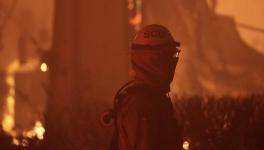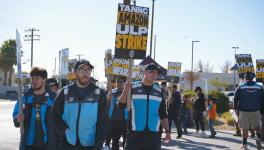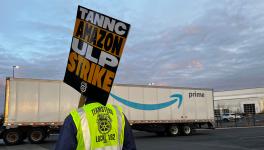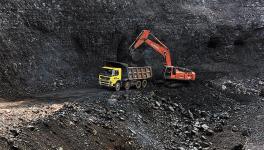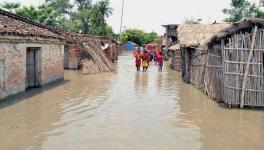For US Workers, Capitalism Brings the Heat
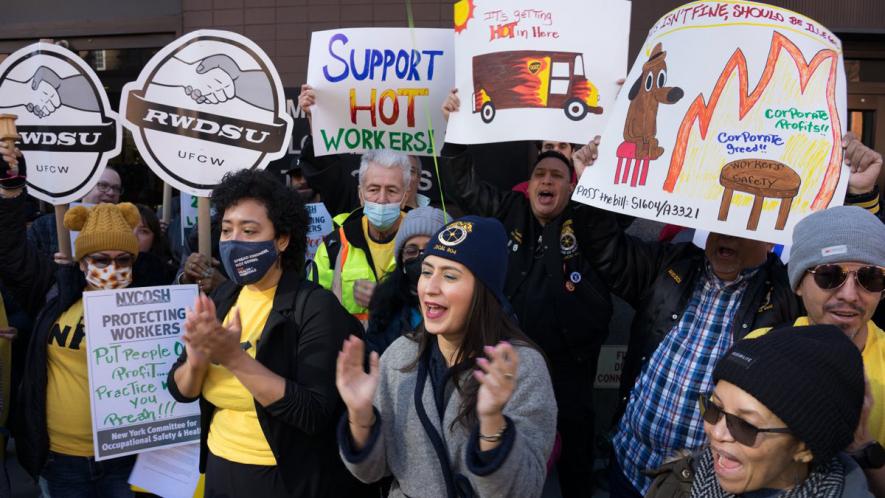
UPS Teamsters fight for heat protections (Photo: Teamsters)
On July 18, nearly 79 million people in the United States were living in areas expected to have dangerous levels of heat—over one fourth of the population. The South and Southwest have been particularly affected. Local weather services are reporting record heat due to a heatwave that is sweeping the globe, less than two weeks following the hottest days on record and concurrent with deadly floods which have been sweeping through the Northeastern part of the country.
Human-made climate change is the culprit as the emission of heat-trapping gasses continues to ramp up temperatures worldwide. The planet has warmed approximately 2 degrees Fahrenheit since the 19th century, and as the planet warms, extreme heat events are becoming longer, more frequent, and more intense. And yet it is not those who run the industries and command the militaries which emit the most heat-trapping gasses, or those who drive the policies that enable them, who bear the brunt of the consequences of climate change. It is, as always, the working class who suffers most.
A new state law in Texas, one of the states most impacted by this week’s heat waves, will eliminate mandatory water breaks for construction workers, effective September 1. According to Texas officials, heat killed at least 13 people last week in the state. “Texas leads the nation in construction worker fatalities, particularly those in over-exposure to heat,” Ryan Pollock with IBEW Local Union 520, a labor union representing electrical workers in Austin, Texas, told NewsNation. Workers in Texas report having their pay docked for taking water breaks.
According to a Public Citizen report, heat can kill up to 2,000 workers each year and cause 170,000 heat-related injuries—making it a leading cause of deaths on the job.
Amid the sweltering heat, UPS delivery drivers are working another summer without air conditioning in their trucks. Last summer, after working a shift in Los Angeles with temperatures in the high 90s, UPS driver Esteban Chavez Jr. collapsed and died a day after turning 24. UPS does not outfit their trucks with air conditioning, unlike fellow delivery giants Fedex and DHL. And yet the company makes sure to install surveillance cameras into each of the vehicles to keep tabs on their workers.
UPS workers have been fighting hard for air-conditioned trucks, and leaders in their union, the International Brotherhood of Teamsters, just successfully won this demand in contract negotiations. However, negotiations have stalled following an abysmal proposal by UPS negotiators regarding fair pay, and 350,000 UPS workers might go on strike on August 1.
New York’s Teamsters Local 804, which organizes UPS workers, is canvassing to help pass the Temperature Extreme Mitigation Program (TEMP) Act, which would “require New York employers to protect truck drivers as well as construction, agriculture, landscaping and food service workers in extreme temperatures—including providing them with drinking water, rest breaks, air-conditioning and shaded rest areas during heat waves,” writes The City.
The death of United States Postal Service (USPS) worker Eugene Gates Jr., who collapsed while delivering mail in June, shed light on the USPS’s practice of disciplining workers for what they call “stationary events.” Gates Jr. collapsed in a customer’s yard as temperatures reached almost 115 degrees Fahrenheit in Texas. A month prior to his death, Gates Jr. had been disciplined for a “stationary event” which is when a mail deliverer’s scanner registered the work as not moving for a few minutes. “Stationary events” often occur when workers need to pause for a brief break in the extreme heat. Management harrasses workers for these supposed infractions, writing messages such as “BEAT THE HEAT!!! NO STATIONARY EVENTS; KEEP IT MOVING!”
In Liberation News, socialist activist Walter Smolarek envisions what a socialist response to extreme heat might look like. “On days when temperatures are simply too high to safely work outside, outdoor workers would be given the day off with no loss of income,” he writes. “Outside of extreme heat waves, a socialist government would work with unions to develop a comprehensive set of measures to dramatically improve safety. This would include cooling stations at workplaces, more legally-mandated breaks, and shorter working hours.”
Get the latest reports & analysis with people's perspective on Protests, movements & deep analytical videos, discussions of the current affairs in your Telegram app. Subscribe to NewsClick's Telegram channel & get Real-Time updates on stories, as they get published on our website.









